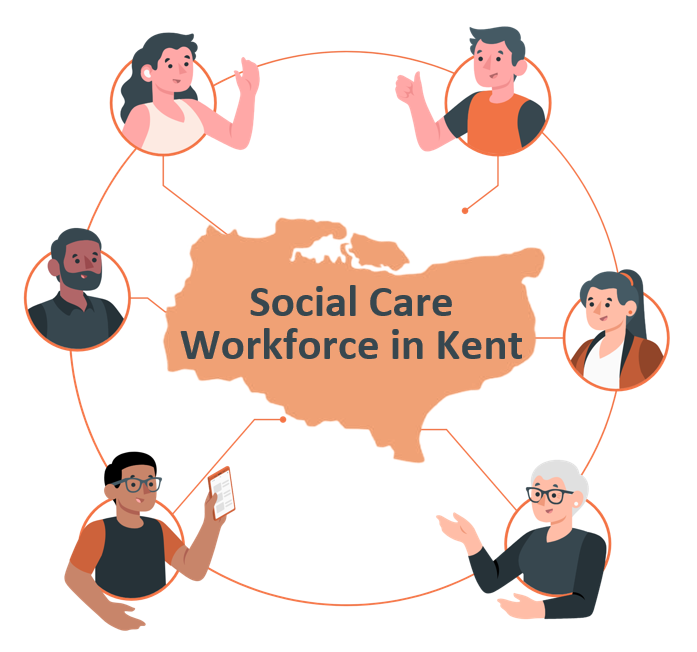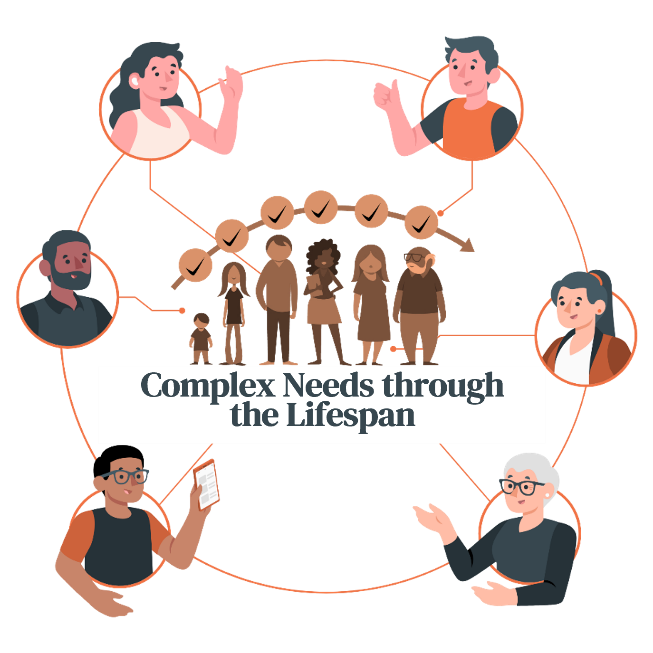9 January 2023
By Dr Wenjing Zhang  – Researcher in Residence at Kent Research Partnership
– Researcher in Residence at Kent Research Partnership
We have reached the half-year milestone for the launch and first meetings of Kent Research Partnership’s two Communities of Practice (COPs)!
-
-
- Supporting people with complex needs throughout the lifespan
- Enhancing, diversifying and sustaining the social care workforce
-
These two COPs have been co-designed and shaped by people who have experience with adult social care in Kent, including public members, family carers, people who access social care, and those working in the sector.


Following Lilly’s blog in May on the launch of two COPs and the introduction of the one on “Supporting people with complex needs throughout the lifespan”, this blog looks back to what happened at the Workforce COP in the last six months.
Progress so far
The workforce COP has successfully brought together people who have different expertise but a shared goal, where we share best practice, research and learning under the broader topic of “enhancing, diversifying and sustaining the social care workforce”. In the past six months’ Workforce COP meetings, we have had informative talks and fruitful discussions. We greatly appreciate our speakers who have brought their professional, frontline, research and lived experience and expertise to the community:
- Pia Rathje-Burton, Skills for Care locality manager covering Kent and Medway.
- Lyn Gallimore, a member of our lived experience working group and an active volunteer for Healthwatch.
- Collette Thornton, Business Development Manager, Cartref Homes.
- Stephen Allan, Senior Research Fellow, Personal Social Services Research Unit, University of Kent.
- Isabelle Latham, Researcher in Residence, Hallmark Care Homes.
- John Potts, public engagement and lay representative for the Kent Research Partnership, co-lead of our lived experience working group.
- Sophie Fournel, CEO, Disability Assist.
- Lara Bywater, Director, LDC Care Co & Board Director, Kent Integrated Care Alliance (KiCA).
Our speakers talked about many topics around the social care workforce in Kent, including recruitment and retention in adult social care, workforce data, career development pathways, support for care workers, what we can do to make working in social care more attractive for young people, experience and expectations from social care practitioners, research in care homes, and how research findings inform practice and policy making. All our COP members have made significant contributions to the discussions and further networking and collaboration. You can find more details about these talks and meetings from our online platform, Glasscubes (email KentResearchPartnership@kent.ac.uk to join).
What’s next?
Communities of Practice support knowledge sharing and practice improvement. We are learning together and from each other via these COP meetings and online discussions. With supporting research capacity building of social care workforce as our key focus, Kent Research Partnership will fund and support several social care practitioners to conduct a research and training fellowship and some pilot research projects in the upcoming months. Practitioner fellows will be actively involved in the COPs and share their research ideas, progress, findings and impact with our COP members. As a member of the COPs, you will also oversee and support these pilot research initiatives in adult social care research in Kent.
There will also be other collaboration opportunities coming up in our COP. So please keep coming to our meetings and discussions, and watch out for news on Glasscubes.
Interested in joining our Communities of Practice?
If you are interested in joining us, it’s never too late. All you need to do is drop us a line to get added to the mailing list: KentResearchPartnership@kent.ac.uk
If you are interested or intrigued, but you are not sure if it is for you, please come along to see what it is all about – we need everyone with an interest to bring ideas from a range of roles and experiences relevant to adult social care in Kent. The next meetings of each CoP will take place in January 2023 – please register on Eventbrite to join!
Enhancing, diversifying and sustaining social care workforce: https://www.eventbrite.co.uk/e/473258297307
Supporting People with Complex Needs throughout the Lifespan: https://www.eventbrite.co.uk/e/january-meeting-communities-of-practice-complex-needs-tickets-473288738357
Views: 413
 By John Potts
By John Potts
 By Gina Walton – Senior Project Manager, Kent County Council
By Gina Walton – Senior Project Manager, Kent County Council